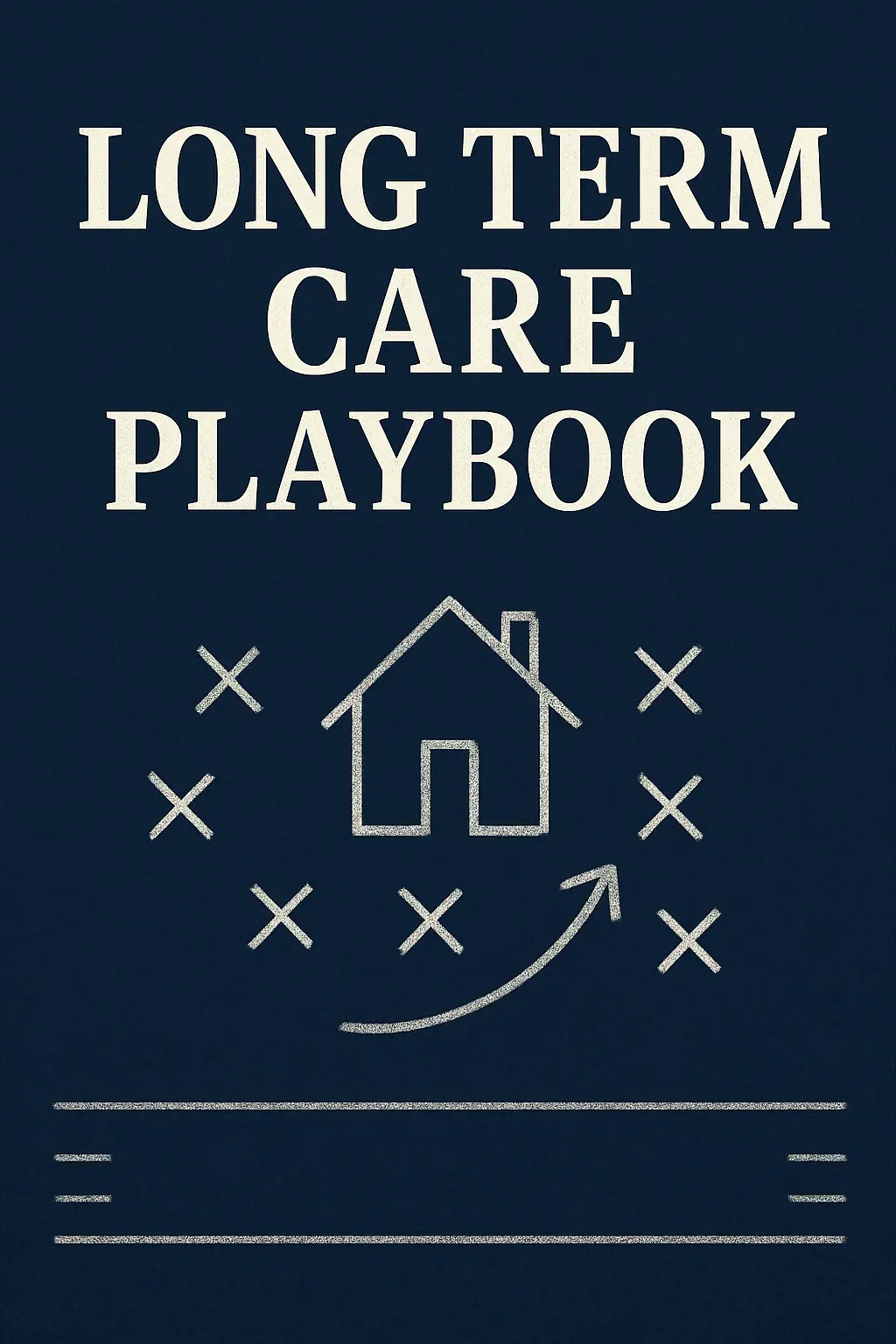Plan Ahead with Long-Term Care Insurance
Long-term care insurance helps cover the cost of extended care when aging, illness, or disability makes it difficult to manage daily activities on your own. Whether you choose traditional LTC coverage or a hybrid policy with added benefits, this protection ensures access to quality care—without placing a financial or emotional burden on your family.
At Diversified Insurance Brokers, we help you understand your options and find a plan that fits your needs, goals, and budget—so you can protect your independence and your assets with confidence.
Long-Term Care (LTC) Overview:
What Is LTC?
Long-term care (LTC) refers to a broad range of personal and medical support services for individuals who are unable to care for themselves due to chronic illness, disability, or the effects of aging. These services are designed to assist with Activities of Daily Living (ADLs)—the basic tasks required to live independently.
The six commonly recognized ADLs include:
-
Bathing – personal hygiene and grooming
-
Dressing – putting on and removing clothing
-
Eating – feeding oneself
-
Toileting – getting to and from the bathroom and managing continence
-
Transferring – moving in or out of a bed or chair
-
Continence – controlling bladder and bowel functions
LTC can be provided in a variety of settings, including in-home care, assisted living facilities, nursing homes, and adult day care centers. The primary goal is to help individuals maintain their independence, dignity, and quality of life, while ensuring their safety and well-being.
How LTC Can Help You
Long-term care provides vital support for individuals who need help with daily living activities, enabling them to maintain independence and remain in a comfortable, familiar setting for as long as possible. Whether care is delivered at home or in a facility, LTC services are designed to promote dignity, safety, and quality of life.
For families, long-term care offers peace of mind—knowing their loved ones are receiving the attention and assistance they need. It also plays a critical role in managing chronic health conditions, reducing the risk of injury, and preventing costly hospitalizations through regular supervision and personalized care.
Benefits Of LTC
-
Long-term care services are tailored to the individual—ensuring each person receives the right level of support based on their health, lifestyle, and personal preferences. Whether it’s help with daily activities, medication management, or more intensive care, LTC adapts to meet evolving needs with compassion and precision.
Traditional vs. Hybrid Annuity/Life Long-Term Care
Traditional Long-Term Care Insurance
-
Traditional LTC insurance is a standalone policy created specifically to cover the cost of extended care. It provides benefits for a wide range of services, including in-home care, assisted living, nursing homes, and adult day care. These policies are typically comprehensive, offering flexibility in how and where care is received.
While traditional policies often come with lower premiums than hybrid options, they usually follow a “use-it-or-lose-it”model—meaning benefits are only paid if care is needed.
Hybrid Annuity and Life with Long-Term Care Benefits
-
Hybrid LTC policies combine long-term care coverage with either a life insurance policy or an annuity, offering a flexible alternative to traditional standalone coverage. If long-term care services are never needed, the policy still provides value—typically through a death benefit (in the case of life insurance) or an income stream (with annuity-based plans).
This structure ensures that your money is never “wasted,” making hybrid policies appealing for individuals who want long-term care protection but also guaranteed financial return if care is never used.
LTC FAQs
-
Long-term care (LTC) insurance helps cover the cost of extended care services that aren’t covered by Medicare or traditional health insurance. This includes assistance with Activities of Daily Living (ADLs) such as bathing, dressing, eating, toileting, and mobility—whether care is provided in a nursing home, assisted living facility, or at home. This is generally the more common method of planning for care needs, opposed to the alternative option of Short Term Care.
No-Obligation Consultation: Let’s Find the Right Long-Term Care Plan for You
Choosing the right long-term care strategy is a personal decision—shaped by your health, financial goals, and family dynamics. Traditional LTC insurance offers lower premiums and dedicated coverage, while hybrid policies provide added flexibility, guaranteed death benefits, and the reassurance that your investment won’t be lost—even if you never require care.
At Diversified Insurance Brokers, we take the time to understand your needs and guide you through the entire process. Our experienced team will help you compare top-rated plans and find the solution that fits your goals and your budget.
👉 Get started today with a personalized quote and expert guidance—at no cost to you.
Need More Information?
We’re here to help you plan with confidence.
Use our Lifetime Income Calculator to explore your retirement options, or complete the form to connect with our expert team. We’ll guide you step-by-step—no pressure, no obligation.

One Click Away from Coverage — Get a Quote or Apply Today for Life Insurance, Annuities, Medicare & More
From instant term life to guaranteed issue policies, fixed annuities to Medicare supplements, we make it easy to compare top-rated options and apply online in minutes. Whether you’re planning for retirement, protecting your family, or exploring long-term care coverage, you’re just one click away from customized protection.
FAQs: LTC Insurance
What is long-term care insurance and what does it cover?
Long-term care insurance (LTCI) helps pay for extended care if you need assistance with daily activities or have cognitive impairment. Covered services can include home health care, adult day care, assisted living, nursing facility care, and caregiver support.
When do benefits start (what triggers a claim)?
Policies generally pay when a licensed professional certifies you can’t perform at least two Activities of Daily Living (like bathing or dressing) without help, or you have a severe cognitive impairment that requires supervision.
What types of LTC policies are available?
There are traditional stand-alone LTC policies, hybrid life/LTC policies, and annuity/LTC designs. Hybrids can provide a death benefit if you never need care, while traditional policies focus purely on care benefits.
How do I choose benefit amount and duration?
Two key levers are your monthly or daily benefit and the benefit period (e.g., 3–6 years or pooled benefits). We align these with local care costs, your budget, and how much risk you want to self-insure.
Do I need inflation protection?
Inflation protection helps your benefit keep pace with rising care costs. Options include 3% or 5% compound, simple increases, or indexed features on hybrids. It raises premiums but improves future purchasing power.
What is the elimination (waiting) period?
It’s the time you pay out of pocket before benefits begin—commonly 90 days for traditional policies. Longer waits lower premiums; shorter waits cost more. Some hybrids use a different structure.
Can couples share benefits?
Many policies offer shared or joint benefit options, letting spouses/partners access a common pool of benefits if one exhausts individual coverage.
Will premiums increase?
Traditional LTCI premiums are not guaranteed and can increase by class with regulator approval. Hybrid policies typically have premiums that are fixed or paid via a single deposit, trading flexibility for price stability.
Are there tax advantages?
Benefits are generally received tax-free when used for qualified long-term care. Premiums may be deductible or reimbursable up to limits depending on your situation and policy type. Consult your tax advisor for specifics.
When is the best time to buy coverage?
Applying in your 50s or early 60s can balance eligibility and cost. Waiting can mean higher premiums or health changes that limit options. We’ll compare designs to fit your age, health, and budget.



